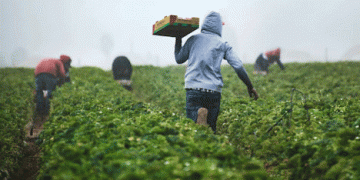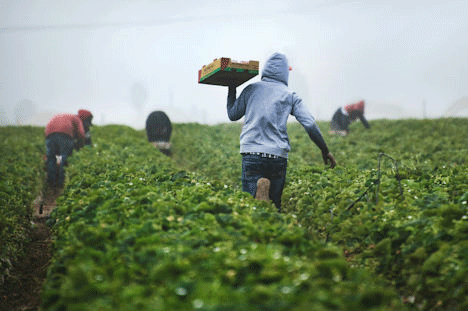As Italy grapples with labor shortages in the agricultural sector, Coldiretti advocates for crucial reforms to the seasonal worker entry system. With a focus on reducing bureaucratic hurdles and enhancing job security for migrant laborers, these proposed changes aim to create a more efficient and responsive labor market, benefiting both employers and workers.
The Current Landscape of Seasonal Labor in Italian Agriculture
Italy’s agricultural sector heavily relies on seasonal workers, primarily migrants, to manage peak harvest times. According to the Italian National Institute of Statistics (ISTAT), about 70% of agricultural workers in Italy are foreign, highlighting the critical role that migrant labor plays in this industry. However, the existing entry system for these workers is fraught with challenges that often hinder their timely arrival, leading to inefficiencies and lost productivity.
Ettore Prandini, president of Coldiretti, and Romano Magrini, the organization’s personnel manager, recently outlined key demands during discussions with the Italian government aimed at reforming the entry regulations for foreign workers. One of their primary concerns is the need to revise the existing laws governing seasonal labor inflows, which they argue have become a significant barrier for agricultural employers.
Key Proposals for Reform
- Streamlining Bureaucratic Processes: Coldiretti emphasizes the urgent need to reduce bureaucratic obstacles that delay the entry of seasonal workers. Currently, many employers face lengthy application processes to secure permits, which can result in workers arriving after the critical harvest periods have ended. By simplifying this process, employers can ensure a more reliable workforce when they need it most.
- Guaranteeing Timely Entry: Another critical proposal is to establish clear timelines for the entry of seasonal workers. Many farmers report that workers often arrive only after the harvest is completed, causing significant losses. By ensuring that workers are present during the appropriate seasons, agricultural productivity can be significantly enhanced.
- Enhancing Labor Market Matching: Coldiretti advocates for the expansion of the Italian Ministry of Labor’s platform designed to connect job seekers with employers. This system, if integrated with bilateral agricultural organizations, could streamline recruitment and facilitate better matching of labor supply and demand, ultimately leading to a more organized workforce.
- Expanding Work Permit Conversions: The organization is also calling for an increase in the quotas for converting seasonal work permits into temporary or permanent ones. By providing more stability for migrant workers, Coldiretti believes that agricultural businesses can cultivate a more qualified and reliable workforce, reducing the annual scramble for new seasonal workers.
The Importance of Addressing Labor Needs
Italy’s agricultural sector contributes significantly to the national economy, with the agriculture, forestry, and fishing sectors accounting for approximately 2% of Italy’s GDP. However, the sustainability of this industry is at risk if the labor shortage is not effectively addressed. Coldiretti’s proposals aim not only to enhance the efficiency of the labor market but also to ensure the protection and rights of migrant workers, promoting a fair and sustainable agricultural environment.
The proposed reforms by Coldiretti represent a crucial step toward creating a more efficient and secure system for seasonal labor in Italian agriculture. By addressing bureaucratic challenges, ensuring timely entry for workers, and enhancing the matching process between labor supply and demand, these changes can help secure the future of the agricultural sector in Italy. Supporting these reforms is essential for both the economic stability of agricultural businesses and the well-being of migrant workers who contribute significantly to the industry.































